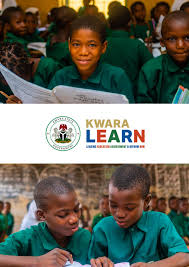The Kwara State Government, through its flagship education reform initiative, KwaraLEARN (Kwara Leading Education Achievement and Reform Now), has concluded a weeklong intensive training programme for 384 School Support Officers (SSOs). These officers are responsible for supervising head teachers and improving classroom practices across the state’s 16 local government areas.
The training, held between 19th and 26th May 2025 in Ilorin, was designed to enhance the capacity of SSOs under the Kwara State Universal Basic Education Board (KWSUBEB). The goal is to strengthen the monitoring and support systems for public schools, especially in rural and underserved communities.
In a statement released by Mashood Agboola, the Deputy Chief Press Secretary to the Governor, the training focused on the use of modern digital tools to improve school supervision, classroom engagement, and overall learning outcomes. The training also aligns with Governor AbdulRahman AbdulRazaq’s broader vision of improving public education and empowering educators.
Speaking at the closing ceremony in Ilorin on Tuesday, Kwara State Commissioner for Education and Human Capital Development, Dr Lawal Olohungbebe, applauded the SSOs for their commitment and dedication throughout the training period.
“Now, you have the responsibility to join the efforts to take the education sector to greater heights. All eyes are on you to support the government’s reforms to improve learning outcomes across our schools. You are expected to put everything you’ve learnt into practice,” Olohungbebe told the graduates.
He reiterated the administration’s confidence in the officers and urged them to justify the investment made in their training.
“We are confident that we will not regret handing this responsibility to you. The government believes in your capacity to transform education at the grassroots,” he added.
“You Are the Pillars of KwaraLEARN”
The Managing Director of KwaraLEARN, Laide Abel, described the training as the most strategic yet, highlighting its significance in sustaining the state’s education reforms.
“This training is not like any other we have done in the past. This one makes you a key part of history because we are handing over the baton to you. You will be the ones to ensure that the KwaraLEARN initiative continues to deliver excellence,” Abel stated.
She urged the participants to take their new roles seriously, warning that the success or failure of the initiative now rests on their shoulders.
“Without your full commitment, this programme can collapse. But I pray it will not collapse in your hands,” she said.
Abel also praised Governor AbdulRahman AbdulRazaq for prioritising education and committing significant resources to the digital transformation of the sector.
“Thanks to the governor’s vision, we now have a digital foundation that is changing the lives of pupils across the state. You are now part of that legacy,” she added.
Participants Applaud Training, Praise Digitisation Efforts
Some participants who spoke to journalists after the ceremony expressed gratitude to the government and KwaraLEARN for what they described as a life-changing experience.
Mr Musa Saidu, an SSO from Kaiama Local Government Area, described the training as “rigorous but eye-opening.”
“We now understand how to support our head teachers more effectively and how to use technology to track and improve teaching,” he said.
Mrs Adeleye Omolara, from Ilorin South, said the training had empowered them with practical skills to monitor schools and improve learning outcomes.
“I thank Governor AbdulRazaq for digitising the education sector. This is a major step forward for us and for future generations,” she said.
KwaraLEARN is a data-driven education reform programme aimed at improving learning in public primary schools by using modern technology to support teachers, head teachers, and supervisors. Since its launch, the programme has continued to receive praise for improving foundational literacy and numeracy among school pupils in the state.
As the newly trained officers prepare to resume duties, expectations are high that they will contribute meaningfully to delivering quality education and sustaining the transformation already underway in Kwara’s basic education system.
